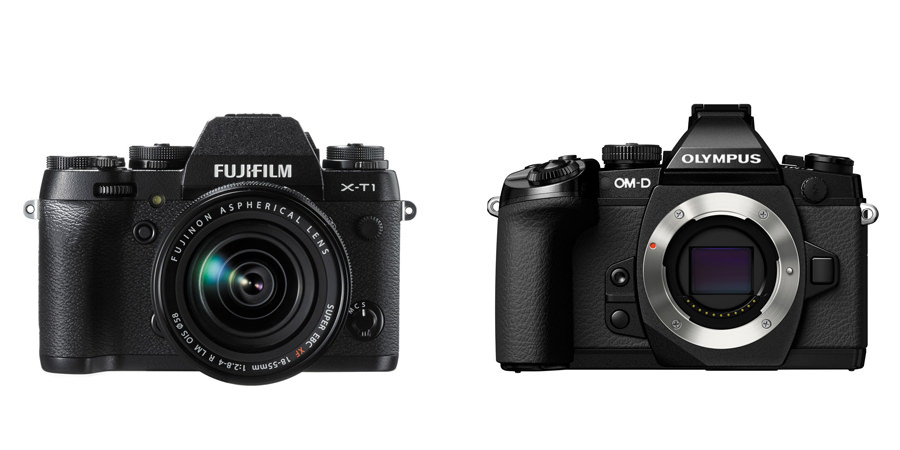The choice of the first camera strategy is an exciting one. Why would it not become? You get to pick the first camera to purchase, the first lens, and you spend a lot time reading reviews, forums plus asking friends for advice. I realize I did – some eight in years past, I was admiring such cameras since the Canon 30D and 40D, plus was seriously eyeing the 400D which was then within the budget of the teenager me. Nikon D200 appeared out of this world and the then-announced D300 was a camera of dreams. Most of these models, now obsolete from a technical standpoint (much like the D700 We now own and love), had been as desirable as any current machines you can think of. Maybe even more so , because the refresh cycle was longer plus digital photography in general not as widespread since it is today.
Yes, the option of the first camera and zoom lens is a very exciting one. But , undoubtedly and at some point, a different query arises for just about all of us, and one a lot less pleasant – should you stick with your best decision or is the grass really greener somewhere else?

Table associated with Contents
The Law of Leapfrogging
One of the main reasons why somebody would want to switch from one system to a different (besides curiosity) is current technologies that the manufacturer-in-question might have. More particularly, it could be the current camera or zoom lens lineup and how it stacks facing competition. No two manufacturers have got ever been equal in all areas simultaneously, so they tend to be attractive for different factors. Here is an obvious example: at this time, Nikon is arguably the most capable DIGITAL SLR manufacturer in terms of sensor performance (and in no small part because of Sony’ s excellent sensors). Full-frame Nikon cameras seem to deliver the very best dynamic range and ISO overall performance at the highest resolution in the industry. Nevertheless , Canon is still arguably the leader with regards to lenses. There are more available options and the mount itself seems to be a lot more “ future-proof” too – it really is completely electronic and physically bigger, so it has the potential to support lens Nikon would really struggle with. Therefore a Canon shooter might be enticed by the sheer image quality shipped by the Nikon D810, while the Nikon shooter might crave a few of the lenses Canon has on offer, like the EF 85mm f/1. 2L or maybe the lightweight super telephoto choices such as the EF 400mm f/5. 6L.

However, this situation is very much temporary. O . k, so there is no actual “ Leapfrogging Law” as such, I made that will up. But if you look back again, you’ ll notice a design – camera and lens manufacturers tend to leapfrog one another every couple of years. If we take a look at what was happening using these two manufacturers about a decade back, the situation was quite different. I recall Canon used to have the advantage in both picture quality and lenses, while Nikon did not even have a full-frame digital camera in its lineup! In other words, one program may be lagging behind in one region, but the situation might flip close to pretty quickly if one business leads in technology innovation or even design. If Canon releases the high-resolution camera with matching powerful range and ISO performance plus Nikon releases more great lens, differences between the two will decline even further.
Does it imply that all Canon users should in order to Nikon just because it currently lights in image quality? On the other hand, simply because Canon seems to have less issues with usana products and a great lens selection, ought to Nikon users jump over? Obviously not. The situation is temporary, plus camera industry has become very powerful over the last five years or so. All of the it takes is one bright individual to generate an idea, one innovative bold shift, and everything might turn inverted in an instant. Deciding to switch to another program because, at this particular time, it appears to be the “ better” one, reaches the very least rather hasty. I am not really saying you should not switch – when you are thinking about it, there is a chance, however thin (let’ s be honest), which you might really be missing something important that an additional system is able to offer. But the present technology alone is no reason to switch quite often. Should you decide otherwise, you may find your self switching systems every two years approximately. And this stands true for all digital camera systems, not just DSLRs.

The particular Excitement
When i have already mentioned, choosing the first digital camera is exciting. It is the sense of this very same excitement that often gets all of us thinking (or agonizing) whether we ought to try a new system, and a feeling of our curiosity. It is also, more often than not, some thing to just shrug off. Don’ capital t get me wrong, excitement is a very important sensation, one that pushes us forward; plus I am not the only one to think therefore . A new camera, and especially one which you are yet to familiarize yourself with attracts you to use it. And yet, eventually, that will curiosity certainly wears off. This always does. We are excited to transfer to a new house, drive a new vehicle or visit a beautiful location the first time. But after weeks and several weeks, that same excitement is no longer right now there and we simply get used to it.
Instead, search for excitement in the process associated with photography itself: in learning new things rather than in the tools you use. If you are pumped up about your equipment, great. It can be an effective engine for your creativity initially. Simply don’ t rely on it to remain that way for a long time…
Obtaining Serious About It
So what should be a good reason to switch? In order to answer that, it is very important to put the particular curiosity and excitement created by the prospect of buying something new and unfamiliar aside, and appear at things objectively. Why you decide to use a particular system in the first place is not just due to the current technology, but a few other elements as well. So , to start with, you need an obvious idea of what you are looking for in a digital camera system and what your priorities are usually: what lenses and accessories you will need, whether size and weight issue, what format are you looking for and so on. Begin fresh, as if you don’ t however own a camera, and compose it all down. Once you have done that will, explore your choices, see which digital camera manufacturers offer that which you need, or even are heading there. Find out which usually specific cameras would suit your needs one of the most. Then, see if the equipment you currently own falls out of that checklist, maybe the reason you are considering to switch is actually curiosity and excitement, and not a real need? Or perhaps it is not a new program that you need, but merely an up-date of the tools you already have?

Once you know your potential choices, think about one final factor – convenience. Whenever I am asked by a newbie photographer which road to choose, the very first advice I always give is this: keep each camera in your hand and see what kind fits – both literally plus figuratively – better. Just find which one is more comfortable and organic to handle. We can get used to any device, true, but that first impact of comfort is a good start, an excellent indication of what to look a lot more closely at. That is one of the reasons precisely why I ended up with Nikon, even though I favor some of Canon’ s ergonomic options (ISO button on the top left, Nikon? ). Nikon cameras just sit down perfectly in my hands.
Finally, we get back to the question associated with current technology. It could be a valid reason, despite what I said, but not due to the fact some manufacturer might have progressed in some areas more than others. If you feel that will another manufacturer has the lenses as well as the cameras that suit your objective perfectly, and it has been so for several years, you may not lose anything simply by trying your luck. But you is only going to truly win if your current strategy is actually not enough for your needs. And not the digital camera you own, but the whole system, the entire lineup of equipment on offer. For instance , a Canon 5D Mark 3 is significantly better in most values than my old D700. Nevertheless , my D700 also happens to be adequate for my uses at this time. Over that, should I outgrow that digital camera, the Nikon system I decided has newer and more capable apparatus that leaves no reason for me personally to make a jump to Canon. I might say exactly the same thing if I got chosen Canon eight years ago as well – it’ s not really regarding these two specific manufacturers (I simply chose them as the most obvious plus easy-to-compare examples), but camera producers in general. So here is an help and advice: to find out whether you actually need to in order to a different manufacturer, or if the concern is somehow different and needs a different solution, stop reading regarding new equipment. Go out and make use of yours. See if there is anything that’ s really missing, and not just “ missing” because rivals have it.
Sentiments Issue
I by no means thought that tools should be just equipment – my perspective has always been that will even a slight personal attachment can result in good things. Even if merely a wish to utilize the said tools more often. Many of you will disagree, I expect, but the following is something that’ s quite difficult to dispute with: using tools that you in fact don’ t such as (as in, really feel something negative towards) will spoil the experience and the process. So emotions do matter. One of the main reasons I chose Fujifilm (and I am not afraid in order to admit), was the design. I think the particular X-Pro1 is a beautiful product, being the X100S, as is the X-E2; and I learned to appreciate beautifully created objects. It is far from being the most crucial aspect of the system for me. Very definately not it. And yet it is something that can make me like the gear that little bit better, and enjoy using it more than I might otherwise.

On a various note, there is a certain brand I might rather not mention (to prevent potentially offending someone) that has launched just one camera that I really enjoyed. It has nothing to do with the manufacturer alone or how good and advanced the particular cameras are. I just never desired to own one of those tools – these people don’ t click on with me. There is a possibility I would come up with as good of an outcome with this manufacturer’ s cameras, considering that from a purely objective point of view, all those are great tools. But I don’ t like them, as silly since that may sound. It is not criticism, simply a personal sentiment, or lack of a single.
In short, focus on apparatus you actually like. Don’ t create affection more important than it should be – I really don’ t think the sports photographer should be using certainly one of Olympus PEN models rather than a DIGITAL SLR just because they are more stylish. Yet owning and using equipment you really such as will only serve as a stimulus to utilize it more for the purpose you bought this for in the first place, which is always the best thing.
Two Systems Is Not A Bad Matter
Compact digital camera systems are a breath of clean air in the camera industry. If prior to the whole boom of mirrorless digital cameras you had a choice of different, but basically very similar DSLR systems (which produced owning two DSLR systems instead pointless in many cases), mirrorless digital cameras from Olympus, Sony, Fujifilm along with other manufacturers offer something truly various. Not better, not worse – I don’ t believe in this kind of generalizations. But different. Mirrorless cameras have their abilities and failings when compared to DSLRs . More importantly, the 2 systems seem to complete one another perfectly. One gives you diminutive size plus weight, while the other delivers reliable, uncompromising performance and speed in different situation.

Now, in case you only own one camera in fact it is enough for your needs, you’ ll need to make the difficult choice – determine not only on the manufacturer, but also around the type of camera you need. So that indicates you will end up choosing between mirrorless plus DSLR at some point. If, however , you require or plan to own two digital cameras and like your current DSLR program, but also think you could really make use of a mirrorless camera for, say traveling photography, by all means go for it. I at this point use Fujifilm and Nikon, and am would be hard pressed to say which one may be the “ main” system – I actually find Nikon to be safer and much more dependable during weddings (although which is merely an unsupported-by-facts feeling), whilst Fujifilm seems to be more quirky, prudent and fun to use, especially for individual and casual work. And it can make more sense for me to own the Fujifilm and a Nikon, rather than 2 Nikon DSLR camera bodies.

Are there any real problems with owning two systems? The main one may be the amount of bespoke accessories, batteries plus chargers that can’ t end up being interchanged, as well as the potentially increased price. Post-processing might also be an issue, considering that different RAW files react in a different way to the same adjustments.
The Question associated with Price
This is a general belief that changing a method to another is expensive, and this really belief also serves as the main cease, holding so many photographers from really doing it. Sometimes, it really is expensive. Yet I would still call it a misconception. Why? The reason why so many tend to brand switching camera systems as costly, is because photographers usually don’ to think about buying equipment used, although the equipment they are selling is.
If you are switching to another program, you end up selling your old apparatus. Now, given that your old products was indeed “ old”, such as – used and not brand new, the particular logical choice would be to… purchase the different system used, too. To put it differently, exchange used equipment of one producer into used equipment of an additional. Which, given the same condition, course and generation of equipment, ought to prove to be very similar in price. It may be a bit cheaper or a little bit more expensive, although not excessively so. But if you market the old system and go for completely new tools, you end up spending way more. If you feel about it, it is very similar to updating each and every piece of gear that you own to some brand new copy. Which, too, will be expensive. Basically, in such a case, one is paying out not just for changing their program, which really should not cost all of that much and could potentially even return some of the initial investment – you are also paying for receiving brand new products, and that is why you feel the financial effect on your wallet.

Mind you, there exists a downside to purchasing used equipment. 1st, you can always get cheated if you are not cautious (read our article about purchasing used cameras plus buying used lenses ). Second, it may take a while to find every piece of the kit that you need within good condition.
Final Words
Deciding on whether to switch to another camera system or not is not always easy. It takes a lot of objectivity to separate genuine reasons from the often false “ grass is greener on the additional side” feeling, as well as to tame pleasure and curiosity that eventually has a tendency to wear off. Truth be told, such a shift is rarely truly necessary. And most cases, I would simply advise someone to go out and shoot. But you will find exceptions, of course. If you know your factors are real and important, irrespective whether they are based on the need of much better performance or pure sentiment toward a particular brand, don’ t be reluctant to do it. Just remember, once you have a digital camera and a lens mounted on it, competitors don’ t matter and other techniques don’ t matter. What you do using the tools you own – that is what’ s important. In the end, it is always exactly the same advice: go out, take and most importantly find out .

